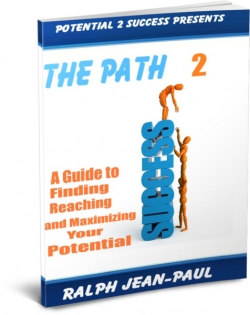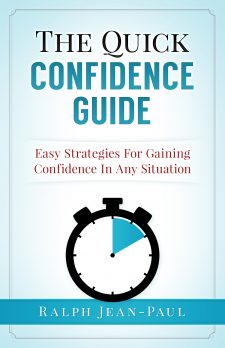Have you ever been in a car with someone and the question comes up,
“What do you want to eat?”
“I don’t know, what do you want to eat?”
“I don’t know, anything is fine with me.”
“McDonald’s?”
“Nah, I’m not in the mood for burgers”
And so on for about another 3 miles. Quick decision making is critical in just about every aspect of life. Every decision you make produces a result. For some, the decision making process is a quick and painless one. For others, trying to choose what to wear first thing in the morning can be a time consuming project.
Why It’s So Hard to Make a Decision
If there is amazing power behind making a decision and if the decisions you make ultimately shape your life, why is it so hard to decide? General Peter Pace offers this explanation, “Some things today–cellphones and e-mail–are not healthy for growing leaders.
Before cellphones, if the boss was away, the next person in line had to make a decision. It was either right or it was wrong, but you had to accept responsibility. You learned and grew from that. Now it’s too easy to call for advice. Senior leaders have to start saying, “Look, if it’s not dying or burning, don’t call me.”
I have to agree with the General. The responsibility of decision making should be placed on the person making the decision. If you are not a strong decision maker, the best thing you can do to become better is to start taking on the challenge of making your own decisions. That is easier said than done for some people. There are many factors that can inhibit people from becoming good decision makers.
Fear of failure-One of the reasons why the decision making process is so difficult for some people may be because the consequences of that decision may be severe and you do not what to deal with the outcome.
Fear of Accountability-Some do not want to be responsible for what may happen if a decision they make is a mistake.
Lack of Experience-Not having to make major or even minor decisions of your own early in life can make you incapable of making tough decisions as an adult.
Too Many Options-Having many good options will make your decision making process more difficult.
Calculations VS Feelings
Most people think that all decisions should be made depending upon how you feel. There are times when making decisions based on feeling is the right thing to do. There are also some advantages to making intuition based decisions. One advantage is speed. Making decisions based on feelings requires no calculations.
I was recently at a seminar training session where pizza was served. As the line formed and we picked out our slices, I noticed two different types of people. Some would walk up to the pizza box that had the toppings they wanted. They would take a quick look, and then grab the slices closest to them. Others would carefully look at the slice and mentally measure which of the slices were smaller and then take the smaller slices.
Although it must have been frustrating for the people who were behind those people who calculated their decision, it was clear that their decisions were not solely based on intuition. Perhaps fat content, sodium grams, or carbohydrates influenced their decision and overridden their natural instinct to go after the bigger slices. In some cases, those decisions based on calculations may be the best decision to make.
Simon Yates Managing Director, Equity Derivatives of Credit Suisse First Boston talked about making hasty decision in an article in Fortune Magazine “When you see a trader panic, you can be pretty sure that for the next few hours, he’s going to lose money. All the base instincts in your brain–what I call “caveman brain,” the sort of fight-or-flight feeling of emotion that is designed to stop you from being eaten by a sabertooth tiger–takes over your decision-making. You start trading scared, taking smaller positions on good ideas and cutting profits too quickly.”
On the other hand, making all decisions that are strictly based on calculations may be just as bad as strictly emotional decisions. If you were to try to decide on the best career path that you will devote the next 4 years of your life to, you may factor all of the seemingly important factors. Let’s say that you have to decide between studying to become a Financial Specialist or going to Culinary school. You may factor that you can become a Financial Specialist based on your current skill set, the length of training involved, and the salary an entry level Specialists makes compared to Culinary experts.
You may conclude that the best decision based on your calculations is that it is best to pursue the Financial Specialist career path. Then you may say to yourself, “Wait, I don’t want to be a Financial Specialist.” Even though your calculations may point to one decision your passions may point to the exact opposite decision.
The best way to begin to make a decision you can live with is to ask yourself some important questions.
Questions to ask yourself
-Do I have all the information I need to make a correct decision?
-What options do I have?
-What happens if I make the wrong decision?
-How will I feel if the decision I make is wrong?
-Have I ever needed to make a similar decision in the past? If so, what was the outcome?
-What is my intuition telling me to do?
Making The Decision
People who are able to make good decisions quickly are valued in all parts of life. In business those individuals who can make solid decisions are seen as better leaders and more competent. In football, the quarterback is the most important position because he is the guy that has to make good decisions when a play is called. Even in your own home, the person who makes most of the decisions is the person that sets the tone for your household. Good decision making skills will be invaluable in every part of your life.
Know Your Values– When you know the things that you value, your decisions become easier. If you value your family more than money, then the decision not to take a position that will rob you of time spent with your family will come quicker. The key here is to be honest with yourself about the things that you value. Roy Disney, Walt Disney’s brother who handled the finances for Disney in the early years, said,” It’s not hard to make decisions when you know what your values are.”
Information and Input-Gather any and all the information that you can as fast as you can. You may want to ask someone for some information but when the decision is yours to make, do not rely on their suggestions alone. Instead use their information to make your decision.
Stay Calm-Keeping your cool is one of the best things you can do when you have to make a crucial decision. Decisions made with a level head are better because you are able to process all of the needed information that you have as well as remove any emotional input that may not be valid or irrelevant.
The Courage it Takes-Quick decision making takes courage. To be able to think quickly and deal with the possible implications of a wrong decision is an act of bravery. Begin making small decisions fast based on mostly instinct and monitor the results. Jim Rohn once said, “It doesn’t matter what side of the fence you get off on sometimes. What matters most is getting off! You cannot make progress without making decisions”. Take the first step by learning to decide in every situation you are in and then monitor your outcomes.
Know Your Desired Result– The obvious reason for making a decision in the first place is because there is a need for a specific outcome. The problem that occurs sometimes during the decision making process is that there may be some confusion over the best desired outcome. You must know what you would like to come out of your decision. Whenever I speak to students I always talk about the “point B’ or their destination. Having the desired result clear in your mind is the best way to make a good decision based on feelings and calculations.
Learn to Live With Your Decisions-You have to learn to put bad decisions behind you. Celebrate when a decision you make turns out to be right and learn from the bad decisions. Do not linger on bad decisions made. Do something to take your mind off of the outcome and then go back and find out how you can manage the decision to make the best of the situation.
Steve Yates said again in the Fortune Magazine interview, “Successful traders don’t spend much time regretting decisions or going back over things. If a decision turned out to be wrong, so what? Move on. So when you have to make a quick decision and you know that there’s a good chance it will be wrong–the worst thing you can possibly do is sit there and panic and hope. You have to be decisive–go on and do it.”
Making important decisions in less time means more power and control over your life. It also means that you will have the opportunity to gain the trust of others. Being able to make important decisions will enhance your business and personal life. It is a skill that must be developed in order to be fully effective but if you understand the dynamics of decision making and apply what you have learned, you are well on your way to becoming an effective decision maker.


 Subscribe for free today and get a FREE copy of my ebook The Path 2 Success. Begin your path today!
Subscribe for free today and get a FREE copy of my ebook The Path 2 Success. Begin your path today!










